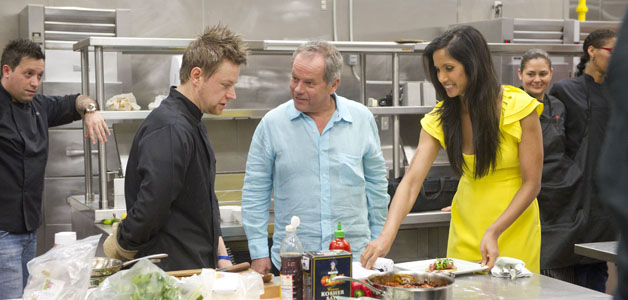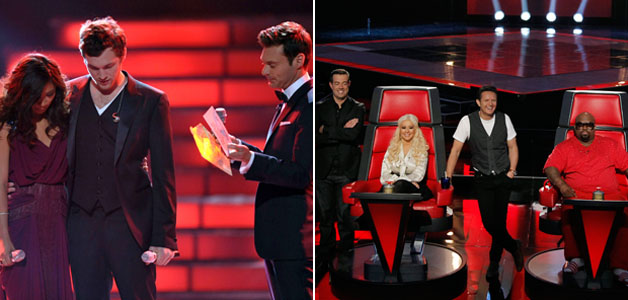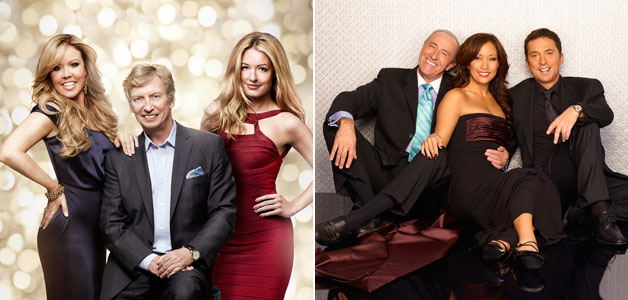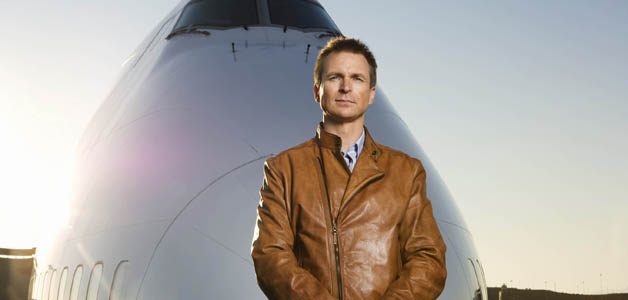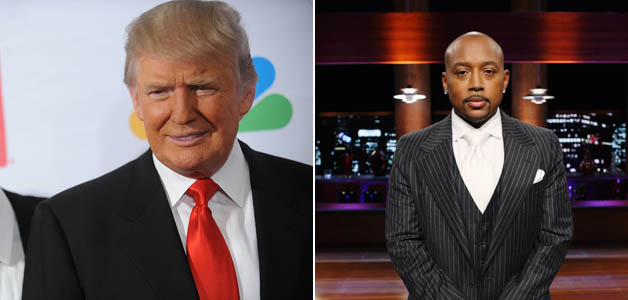Reality
Do reality shows make the grade?
There is a school that average folks can attend to learn how to be better potential reality show contestants. But there’s no version of the New York Reality TV School for the producers and creators behind those shows, who often have little to no experience in the fields their competitions revolve around. So we found our own panel of experts (a chef, a vocal coach, a dancer, an outdoorsman and a career counselor) to take these reality shows to school and let us know if they’ve been doing their homework. The short answer: For some, it may be time for remedial education.
Related: Watch reality stars Padma Lakshmi and Phil Keoghan talk about their shows in the Emmys Round Table.

‘Top Chef’
‘American Idol,’ ‘The Voice’
‘So You Think You Can Dance,’ ‘Dancing With the Stars’
‘The Amazing Race’
‘The Apprentice,’ ‘Shark Tank’
|
Expert:
Tamara Reynolds, author of “Forking Fantastic” and co-host of the Cooking Channel pilot “Married With Dishes” |
Doing it right:
“By turning cooking into a circus spectacle sport, you’re making more people aware of it, which I think is great. In the long run, it’s better for people to know what’s going into their food — it sparked the nutrition discussion, and factory farming has become part of the national dialogue.” |
|
Doing it wrong:
The increasingly complex competitions make the shows ridiculous. “When was the last time you made dinner out of a vending machine? Sometimes you’ll get a chef contestant who shows up to a challenge with precooked frozen shrimp. And I’m like, who is this guy? Did they put him on the show because he was stupid?” |
Learning anything?
To Reynolds, it’s a shame that America’s food obsession hasn’t translated into more home-cooked meals. “It’s almost all about pure entertainment that happens to be about food.” |
|
Grade:
C+ |
|
Expert:
Ben Toth, L.A.-based vocal coach and musical director |
Doing it right:
“I admire ‘Idol’ for introducing all kinds of genres of music to young kids. I gravitate to ‘The Voice,’ though, because the singers have more life experience behind them. Asking someone to sing songs that require pain born of years of experience — it’s a challenge.” |
|
Doing it wrong:
Toth isn’t thrilled that the contestants are almost immediately called “stars.” “These are young people who have a long way to go, and putting them up to this standard of you are or are not a star, that’s a lot of pressure to put on a young person.” |
Learning anything?
The educational value in “Idol” or “Voice” is more of a morale booster than a how-to on becoming a singer, Toth says. “There’s something appealing about watching someone work through their demons and vices and come out on top. People can relate to those things.” |
|
Grade:
B- (“Idol”); A- (“The Voice”) |
|
Expert:
Destiney Bleu, L.A.-based dancer and dance teacher with the International Dance Academy |
Doing it right:
“It’s amazing how both shows let you see how much dancers really go through. They’re rehearsing 40 hours a week for just one dance; they’re forced to adapt and be amazing, and that’s inspiring.” |
|
Doing it wrong:
Most dancers have a “focused style of dance, so when they’re forced to adapt [to other forms of dance], you can miss detail and technique. Working with amateurs, you have to dumb it down a little bit so you don’t look like an ass on ABC that week.” |
Learning anything?
Bleu hopes viewers may be inspired to start hoofing. “Dance is a full-body workout, but it gives you the ability to express yourself. The shows make you aware of that. But it’s probably 50% inspiration and 50% entertainment.” |
|
Grade:
B+ (“Dance”), B- (“Stars”) |
|
Expert:
Gary Lyon, outdoor guide for Discover Outdoors, based in New York |
Doing it right:
Lyon is impressed with how the show keeps things safe in generally challenging situations, like rappelling off bridges or buildings. And time is always an issue, which the show never lets the audience forget: “They remind you that the concept of time is very different outside of the U.S. or Europe.” |
|
Doing it wrong:
Driving is the main issue. Lyon says it is dangerous to put people who exclusively drive automatic transmission cars into manual vehicles and insist that they drive quickly. He’s also dismayed at the attitude contestants often display to locals. “I know they’re under stress, but sometimes they can be very dismissive and insensitive to the people they’re dealing with.” |
Learning anything?
“A lot of Americans do not travel overseas. So this is one way of traveling vicariously and getting exposure to other cultures. It might encourage some people to travel beyond their own borders.” |
|
Grade:
C |
|
Expert:
Roy L. Cohen, New York-based career counselor and executive coach, author of “The Wall Street Professional’s Survival Guide” |
Doing it right:
Big thumbs up to “Shark Tank,” which Cohen says has advisers who give spot-on advice. “They do home in on some of the key issues they view as being important for success in business.” Additionally, the show provides “reality-based vetting from experts who have been successful.” |
|
Doing it wrong:
Cohen says “Apprentice” is too “heavily edited” and “creates artificial situations. It also suggests that this kind of aggressive behavior could be successful at work, and [in reality] those folks would be out on their rear ends.” |
Learning anything?
In the case of “Apprentice,” people are learning “the art of self-promotion. That’s what you get from Donald Trump — that and a lot of bravado and showmanship.” But overall, he says, “Shark Tank” is “an incredible show.” |
|
Grade:
Grade: D (“Apprentice”), A (“Shark Tank”) |
